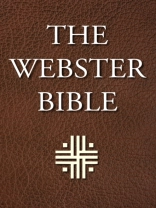The language of the Bible has no inconsiderable influence in forming and preserving our national language. On this account, the language of the common version ought to be correct in grammatical construction, and in the use of appropriate words.
This is the more important, as men who are accustomed to read the Bible with veneration, are apt to contract a predilection for its phraseology, and thus to become attached to phrases which are quaint or obsolete.
This may be a real misfortune; for the use of words and phrases,
when they have ceased to be part of the living language, and appear odd or singular, impairs the purity of the language,
and is apt to create a disrelish for it in those who have not, by long practice, contracted a like predilection.
It may require some effort to subdue this predilection;
but it may be done, and for the sake of the rising generation, it is desirable.
The language of the scriptures ought to be pure, chaste, simple, and perspicuous, free from any words or phrases which may excite observation by their singularity; and neither debased by vulgarisms, nor tricked out with the ornaments of affected elegance.
Noah Webster, 1833
Über den Autor
Noah Webster, Jr. (October 16, 1758–May 28, 1843) was an American lexicographer, textbook pioneer, English-language spelling reformer, political writer, editor, and prolific author.







![Cover von Brian Schrag & Julisa Rowe: Community Arts for God's Purposes [Chinese] 貼近神心意的社群藝術 Cover von Brian Schrag & Julisa Rowe: Community Arts for God's Purposes [Chinese] 貼近神心意的社群藝術](https://static.worldofdigitals.com/thumb_webp/740/9781645083740.webp)




